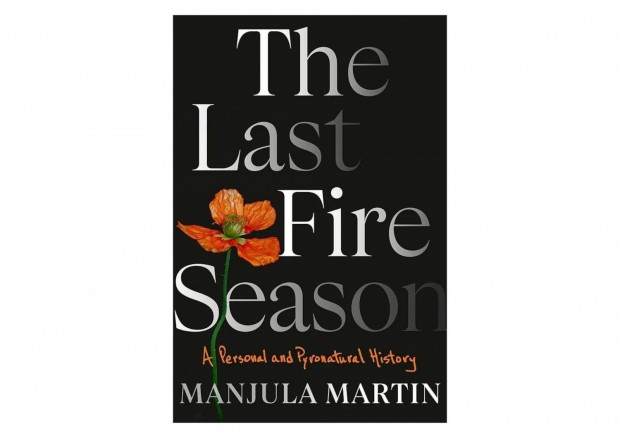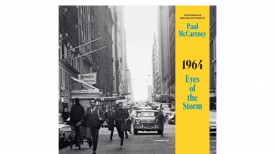‘The Last Fire Season’ by Manjula Martin Book Review: A Candid Memoir on Pain, Climate Grief, and Resilience

Explore Manjula Martin's latest memoir, 'The Last Fire Season,' as she candidly shares her experiences with pain, climate grief, and resilience during the challenging year 2020. (Photo : Amazon/Manjula Martin)
In her latest memoir, Manjula Martin delves into the challenging period of 2020, where the Northern California wildfires and the looming threat of COVID-19 created an atmosphere of pervasive danger. Titled "The Last Fire Season: A Personal and Pyronatural History," Martin explores her experiences with chronic pain, climate grief, and the broader issues of social justice.
Overview
"The Last Fire Season" is a heartfelt exploration of Martin's move from the city to Northern California, where she sought solace in nature. Tending her garden amidst redwoods, she faced the harsh reality of worsening wildfires due to climate change.
The memoir reflects her evacuation during the devastating 2020 fire season, serving as a love letter to Western forests and critically examining colonial practices impacting them. Martin's journey from Sonoma County to coastal Santa Cruz and the Sierra Nevada explores the intricate connections between people, nature, and the challenges of living in a damaged body on an ailing planet.
Manjula Martin's Journey in Sonoma County
Detailing her life in a 'little white house under big red trees on stolen land' in Sonoma County, Martin warmly recounts making it a home with her partner, Max. Raised in Santa Cruz with hippie parents, her return to this landscape is tinged with the awareness that destructive fires are inevitable.
The memoir touches on the constant monitoring of weather and fire patterns, the ever-ready 'go bag' by the door, the impact of smoke on the garden and her health, and the varied responses of neighbors during the early 2020 wildfires.
READ ALSO: 7 Books That Will Transform Your Connection to the Natural World
The Author's Insight
A strong advocate for social justice, Martin argues that capitalism's disregard for Indigenous environmental practices, coupled with climate change, has exacerbated the wildfire crisis. Her visit to Big Basin Redwoods State Park made her reflect on the devastation that fire brings and nature's resilience.
Martin also points out that fire has always been a part of the American West's natural surroundings, but now it is harder to predict because of things people have done. The author suggests a crucial change in how society views fire and nature, emphasizing the need to adapt to living with fire throughout the year rather than thinking about a specific fire season.
Overall Review
Several authors have praised Martin's book. Ed Yong, author of "An Immense World," praised Martin's soulful prose for finding meaning and agency amidst unraveling times. Susan Orlean described the book as a lyrical yet smartly reported piece, offering a thrilling and haunting glimpse into life in Northern California's inflamed woods. Bill McKibben recognized the book as a crucial contribution to natural history writing, praising its precision, engagement, and honesty in grappling with the changing world.
While the memoir has been praised for its insightful exploration of complex issues, some critics note occasional sanctimony and uneven storytelling moments. A review published in Datebook suggested that while the memoir effectively takes readers into the author's specific time and location, some parts might feel ordinary or repetitive.
In conclusion, "The Last Fire Season" is a compelling and relevant memoir that goes beyond personal storytelling to address pressing environmental and social issues. Martin's narrative offers readers a deeply reflective and thought-provoking journey through the complexities of living in a changing world marked by wildfires and the urgency of adapting to this new reality.
RELATED ARTICLE: 'Remarkably Bright Creatures' by Shelby Van Pelt Book Review - A 'Read With Jenna' Pick
© 2023 Books & Review All rights reserved.
Popular Now
1
Books to Read After 'Fourth Wing': Top Picks for Fantasy and Romantasy Fans

2
‘The Secret Public’ by Jon Savage Book Review: An Insightful Look Into the LGBTQ Influence

3
Stephanie Regalado's 'If They Only Knew' Column Is Now A Book, Unleashing 60 Anonymous True Stories to Empower Women

4
'No Wire Hangers' Scene That Almost Did Not Happen: New Book Reveals Faye Dunaway's Struggles

5
Rare First Edition of Aphra Behn's Novel 'Oroonoko' Discovered in Kent: A Historic Literary Find

Latest Stories
Book Reviews
‘The Secret Public’ by Jon Savage Book Review: An Insightful Look Into the LGBTQ Influence

Book News
Stephanie Regalado's 'If They Only Knew' Column Is Now A Book, Unleashing 60 Anonymous True Stories to Empower Women

Book News
'No Wire Hangers' Scene That Almost Did Not Happen: New Book Reveals Faye Dunaway's Struggles

Book Reviews
‘The Perfect Couple’ by Elin Hilderbrand Book Review: A Captivating Summer Mystery

Book News
New Book ‘The Franchise’ Reveals Penguins President Kyle Dubas’ ‘Biggest Mistake’ as Maple Leafs GM











